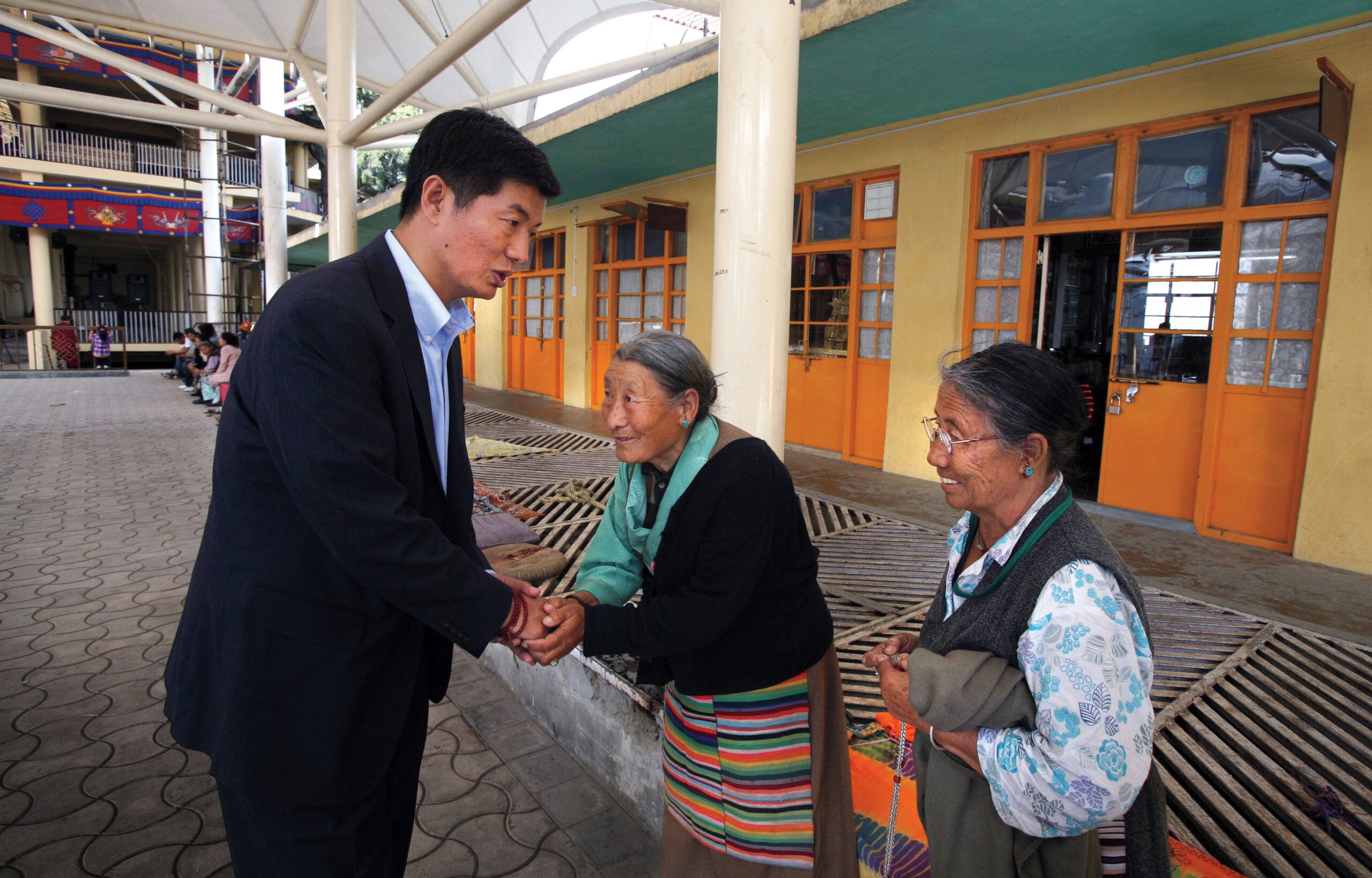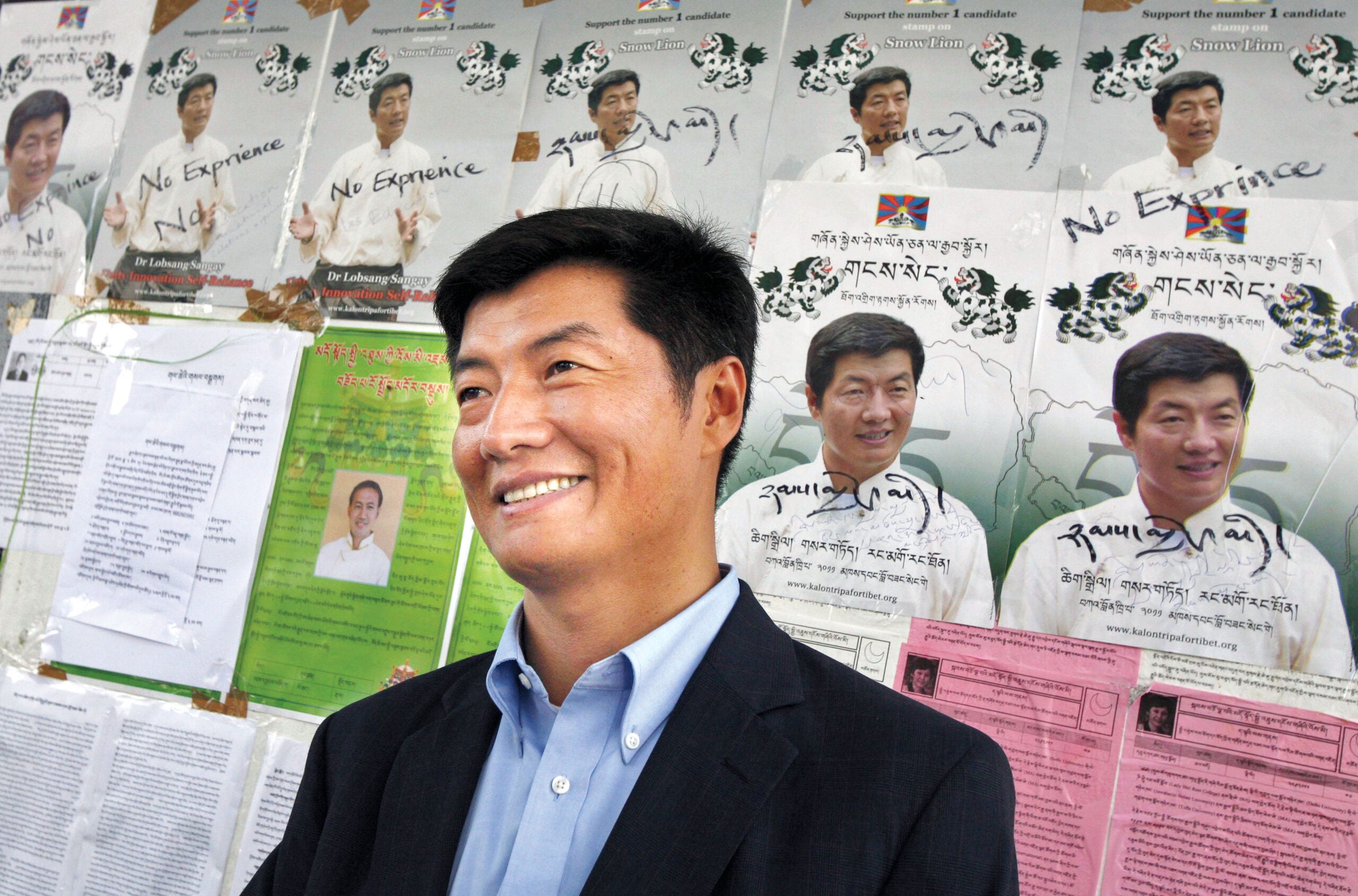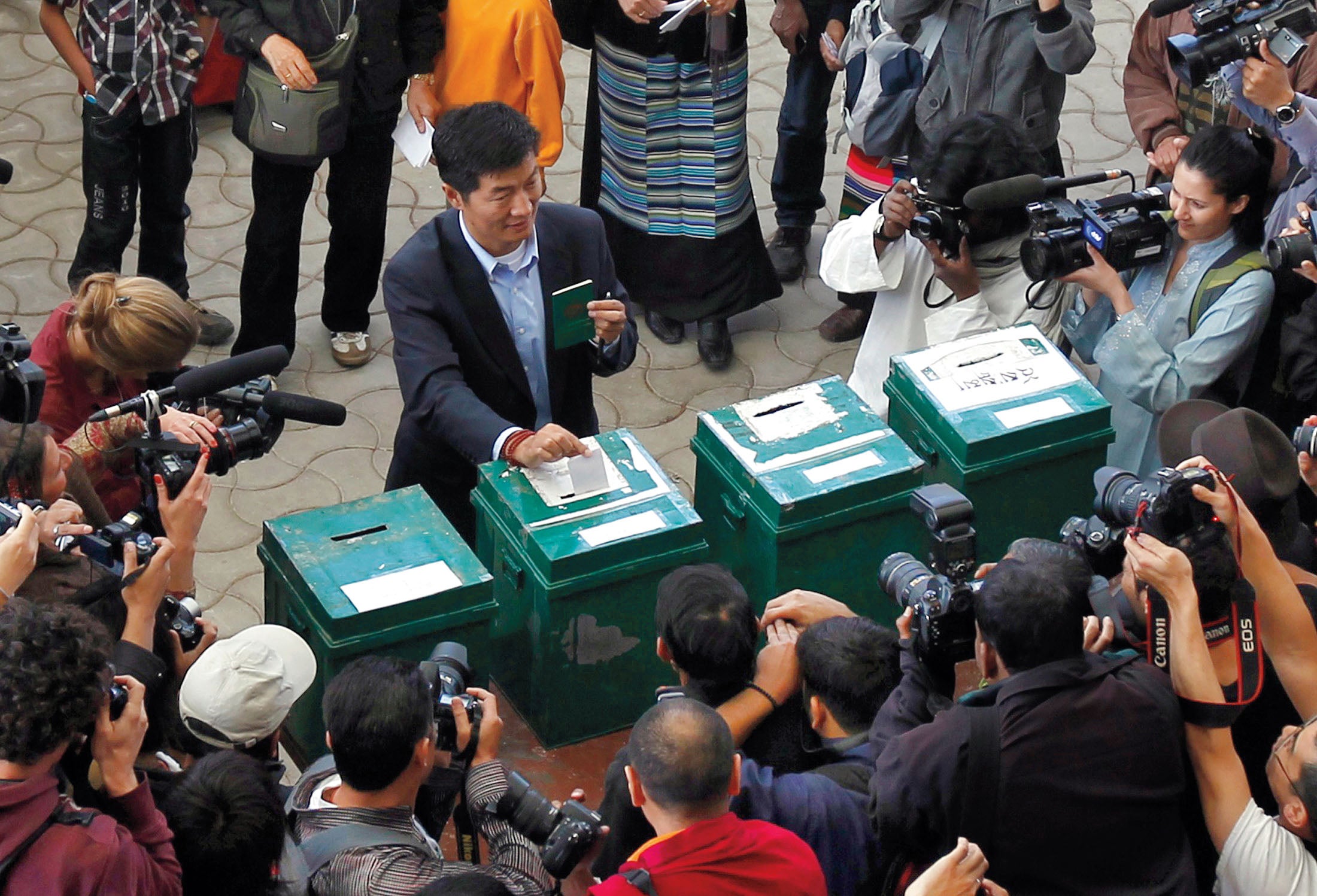Lobsang Sangay LL.M. ’96 S.J.D. ’04 is the first to admit he has rather big shoes to fill as he prepares to take office as prime minister, or Kalon Tripa, of Tibet’s government-in-exile.
Ten days before the March 20 election, the Dalai Lama announced plans to relinquish his role as secular political representative and focus solely on his duties as spiritual leader of the Tibetan people.
“It’s very difficult to replace or be a substitute to His Holiness,” Sangay says. “He will always be my leader.”
Sangay, a former Harvard Law fellow and first-time political candidate, will soon assume leadership of the Dharamsala, India-based Tibetan government-in-exile, in which he has never served, and of its struggle for greater autonomy within China.

Sangay’s victory over two older establishment figures represents a generational shift in power in the Tibetan exile community and only the latest remarkable achievement in the 43 years since he was born in a refugee settlement in Darjeeling, India.
His parents, who had fled Tibet, sold one of the family’s three cows so he could attend a refugee school, where his political awakening began.
Sangay delivered his first political speech on behalf of the government-in-exile before an audience of 1,000 people at the age of 14. As a student at the University of Delhi, he was elected one of the leaders of the Tibetan Youth Congress and organized nonviolent protest rallies in front of the Chinese Embassy in India.
After earning a law degree from the University of Delhi, Sangay realized he needed more exposure to the larger world and a broader range of ideas: “Anyone can be an activist, but to be a more effective freedom fighter, you need more intellectual depth,” he says.
In 1995, Sangay enrolled at Harvard Law School on a Fulbright scholarship. After completing an S.J.D., he became a fellow in the East Asian Legal Studies Program.
Professor William Alford ’77, director of EALS, who taught Sangay and was one of two principal advisers for his doctoral dissertation, says he stood out as “thoughtful, open-minded and eager to engage a wide range of people, including those from China.”
Nowhere was that more evident, Alford says, than during the unprecedented series of seven conferences Sangay organized for Tibetan and Chinese scholars. The meetings on Harvard’s campus provided a rare opportunity for attendees to hear each other’s point of view. “It was a real breakthrough,” Alford says.

Long before this election year, Sangay’s name had begun circulating within the exile community as a possible candidate for Kalon Tripa. But Sangay says he was hesitant at first, unsure whether he knew enough about electoral politics.
In the fall of 2009, he started taking classes on political communications, leadership and campaigns at the Harvard Kennedy School. By the following spring, when his name was put forward, he felt he couldn’t say no.
“I’ve never shied away from responsibility,” Sangay says. “To say no would not be a good example for youth.”
Even before the outcome of the elections was known, Sangay says he made a contribution by “raising the standard of electoral campaigning” in Tibetan elections. He felt candidates didn’t work hard enough to engage with voters, who are spread out all over the world.
Sangay decided to “go to the people” to make the case for his candidacy, traveling through rain forests and hot lowlands and up to mountaintops in India to talk in monasteries or refugee camps as well as exile communities in Europe and North America.
He also employed modern campaign techniques such as a website and DVDs to lay out his agenda, and he participated in two dozen debates with his opponents.
The way Sangay reached out and positioned himself as the candidate for change proved particularly popular among younger voters, says Tenzin Wangyal, a Boston lawyer and member of the editorial board of the Tibetan Political Review.
“He’s a lot more approachable,” Wangyal says. “He makes people feel at ease.”
The final results, announced on April 27, six weeks after the election, revealed he had won 55 percent of the vote.
Sangay will soon relocate from Medford, Mass., where he lives with his wife, daughter and mother, to Dharamsala. There, he will oversee a bureaucracy of more than 1,000 people and the seven ministries that compose the Tibetan government-in-exile.
Adjusting to secular leadership for the first time will prove difficult for many in the Tibetan exile community of 150,000 people, says A. Tom Grunfeld, a Tibetan scholar at Empire State College, State University of New York.
But as the election results were being counted in March, Sangay received a vote of confidence from his adopted hometown’s newspaper. A Boston Globe editorial concluded that “nobody could be better prepared for that challenge” than Sangay, and singled out his experience bringing together Chinese and Tibetan scholars at Harvard.
“If leaders in Beijing ever decide to grant true autonomy to Tibet,” the Globe wrote, “the seeds will have been planted in those classrooms where Sangay’s belief in the value of dialogue was put to the test.”
